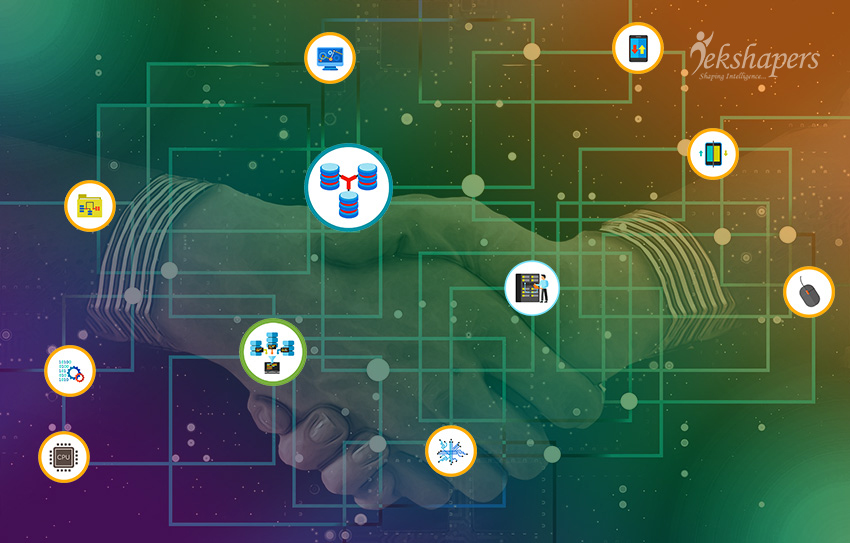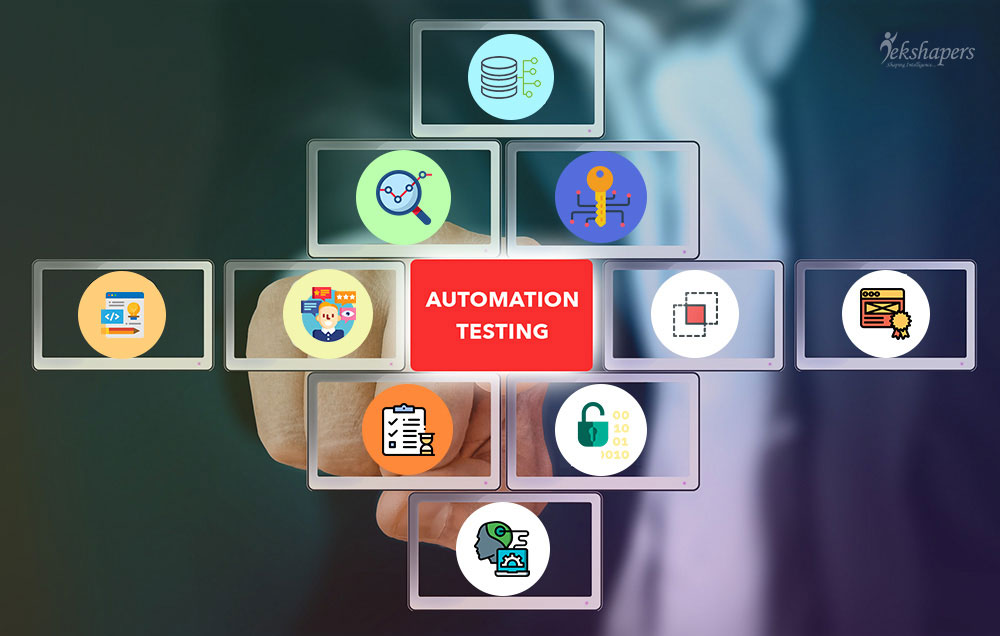Introduction to Blockchain Technology : A New Technology

Blockchain technology has the potential to substantially change the range of financial services. Colin Ellis said that banks could benefit significantly from the development and implementation of Blockchain technologies in terms of cost saving, risk reduction in enhanced efficiency. Blockchain technology is still an emerging technology and is increasing its popularity very fast. Blockchain technology was the primitive form for the hash tree and is also called as Merkle tree. It was patented by Ralph Merkle in 1979 and was functioned by verifying and handling the data b/w computer systems.

Blockchain Technology
In simple terms, Blockchain technology is the public distributed ledger of all the transactions that have ever been executed. It is an incorruptible digital ledger of the economic transaction swhich can be programmed to record not only financial transaction but also virtually everything for value. It offers the way for un-trusted parties to consensus (reach agreement) on a common digital history. It also solves the problems without using a trusted intermediary.
To ensure the security of digital relationships, every Blockchain technology is comprised of three underlying technologies that are combined as:
- Cryptographic keys
- Distributed network (with a shared ledger)
- Network servicing protocol
Types of Blockchain technology
When we talk about the classification of Blockchain technology, there come two types of Blockchain and they are most generally differentiated as follows:
-
Permission Blockchain
This is the type of technology which includes Bitcoin, Ethereum and so on. The most specific and interesting about permission Blockchain is that users have a copy of the Blockchain and can participate in the transaction verification process of their own volition. In this technology, users can also keep their anonymity.

Types of Blockchain Technology
-
Permission less Blockchain
This is the type of technology with a prominent example of being the digital currency Ripple. In this technology, in order to have a copy of Blockchain and to participate in the process of transaction verification process, the users have to obtain the permission. Additionally, with such type of Blockchain technology, users cannot keep their anonymity.
How Blockchain Technology benefits us
- Speeding up the transactions
- Enable near or real-time processing of transactions.
- Cutting cost and complexity
- Increasing resilience
- No single point of failure
- Reducing data duplication
- Provides single shared view in your network
- Reduces data reconciliation

Issues in Blockchain Technology
-
Complexity
Blockchain technology is associated with the tremendous complexity and has an array of highly specialized terms.
-
Network Growth
It has the network of users which is vast and constantly growing that facilitates the stronger response to attacks.

-
Risk of error
With the use of Blockchain technology, there is always a risk of an error occurring as long as the human factor is involved in it.
-
Security Flaw
Bitcoin as well as other Blockchain are highly associated with one considerable security flaw. This flaw is also called as 51% attack which refers to the situation when a group of miners tale control on more than half network of the Blockchain.
Which Industries Use Blockchain Technology?
The newest technology that is quickly becoming the next major reasons for industries to be overhauled is Blockchain technology. The researcher’s marketers stated the fact that, in the year 2020, the market for Blockchain related products and services will reach up to $7.7 billion up, from the past record of $242 from the prediction of last year’s. There are many industries that are slated for this technology in the near future. Some of them are defined below as:
-
Banking
This technology has the potential to solve some of the significant problems which are faced by the banking industry today. Right now, the banks store money for their customers, and they also handle the transfer process of that money. Blockchain inherently has the system for security which would provide permanent records of the millions of transaction that takes place in the baking at each day.
-
Real Estate
Anyone who has ever sold or purchased homes must be aware of how much paperwork is involved in real estate transaction. But, this technology has completely changed the current headache of all these documentation. By using this technology, all the documents and the transaction records can be safely stored with measurable less work and less cost.
-
Health Care
In 2014, the American Recovery Act requires all the public, private and otherwise eligible healthcare professionals to adopt the use of electronic medical records (EMR). The Affordable Care Act also said that the doctors and the hospital requires to implement the electronic health records and is provided $28billion money for the implementation of the sharing of data across providers.

Industries for Blockchain Technology
-
Human Resources
HR professionals spend a great deal of time to verify the employee's identities, backgrounds and the history of their employment. According to the infographic, HR professionals spend their majority of time in performing mainly three tasks as 22% of their time in meeting with their senior staff and business partners, 15% of their time in employee relations and engagement and 14% of their time meeting with their employees.
-
Education
With some significant breakthrough utilizing an emerging version of the internet that combines together, the education industry is completely poised with the blockchain, the cryptocurrency, and the virtual reality. This technology safely provides the auditable way to record and transfer the data. It can also transform the way we live our everyday lives and disrupt the industry that uses the data or transaction at all.
Disadvantages of Blockchain Technology
Even though there are many advantages of Blockchain technology, there are also few disadvantages of this technology as well. Given below is the list of some of the disadvantages or limitations that come across with Blockchain technology such as:
-
Performance
Due to the nature of Blockchain, the performance of this technology will always be slower than the centralized database. Like the database, the blockchain also has to do the same activities, when transaction is being processed, but in this, it carries three additional burdens as well:
-
Signature verification
Using the public-private cryptography scheme, every Blockchain transaction must be signed digitally. This is very important because the transaction which is propagated between the nodes in a peer-to-peer fashion cannot otherwise be proven for their sources. Generation and verification process of these signatures are computationally complex and constitutes the product like ours.
-
Consensus mechanism
In a distributed database, like Blockchain technology, all the efforts must expand to make sure that the codes in each network can reach to consensus. This might involve significant back and forth communication that depends upon the consensus mechanism used to deal with forks and their consequent rollbacks.
-
Redundancy
This is not about the performance of an individual node, but it is the total amount of computation which generally a Blockchain requires. So, for same end results, lots of more work is being done. The centralized database process the transaction once in a Blockchain independently by every node in a network.
-
Large energy consumption
By using a substantial amount of power, the Blockchain network’s miners attempt 450 thousand trillion solutions per second for validating the transaction, by using.

-
Integration Concerns
This technology offers the applications and their solutions which require significant changes to or complete replacement of the existing system. The companies must strategize the transition, in order to make a switch between these transactions.
-
Volatility
Many of the crypto currencies which use decentralized Blockchain technology are extremely volatile in nature. In the year 2017, when China decided to outlaw the crypto currency exchanges, then the price of Bitcoin dropped from $5000 to about $3000 (roughly estimated). This was seems to be a huge drop and currently, this sort of volatility is a major concern for many people who think to invest in crypto currencies.
-
Uncertain Regulatory status
Because the modern currencies are always been created and these currencies are regulated by the national government, therefore the Blockchain and Bitcoin face the hurdle in widespread adoption by pre-existing the financial institutions, if the government regulation status remains unsettled.
Blockchain Technology does have some limitations now but it is a progressive technology which people are adapting at a very fast pace. Many IT companies are now offering Blockchain technology solutions to its clients for better business & productivity.
Conclusion
Tekshapers not only facilitates blockchain application development but also provide a team of experts to support in operation and enable various solutions for your idea. We are committed to supporting the vast array of sustainability of the product.
Recent Blog

Why Your Business Needs a Mobile App?
06-Dec-2022Related Blogs

How Beacon Technology Impacts Business
27-Apr-2018
What will be the Future of Blockchain Technology
14-May-2018

The Complete Guide on Enterprise Data Analytics
17-Aug-2018









